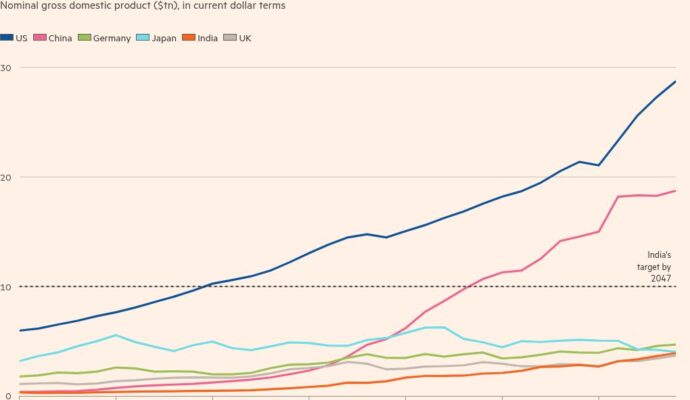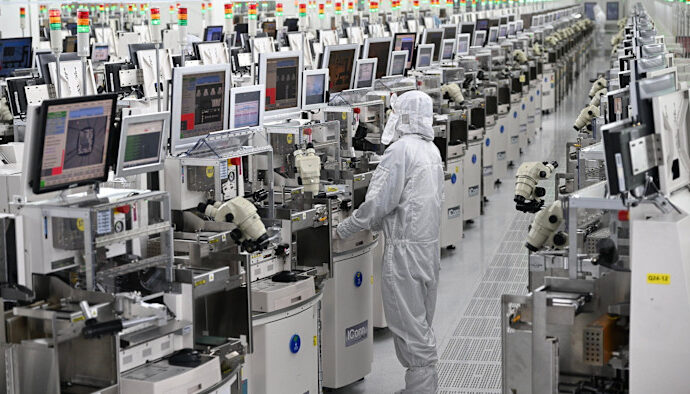Unlock the White House Watch newsletter for free
Your guide to what Trump’s second term means for Washington, business and the world
The US cancelled a meeting with Taiwan’s defence minister in June, deepening concerns in Taipei that President Donald Trump is wary of supporting the country in ways that could anger China.
Wellington Koo had planned to visit the Washington area for defence talks with Elbridge Colby, the number three official at the Pentagon. But the US called off the meeting at the last minute, according to several people familiar with the matter.
The US told Taiwan that the timing was bad because of its strikes on Iran. But several of the people said there were other concerns.
Some US officials worried that allowing the Taiwanese defence minister’s visit would undermine US-China trade negotiations and damage Trump’s efforts to secure a summit with President Xi Jinping.
The US and Taiwan are discussing new dates for a meeting. But people familiar with the matter said the US wanted to hold the meeting at a lower level than Koo, which has amplified concerns that Trump wants to avoid antagonising China. One US official said it was still unclear at what level they would be held.
The cancellation came after a call between Trump and Xi, which has sparked speculation that the US president may have caved to Chinese pressure.
Letting Koo visit would have signalled a willingness to ignore pressure from China, which claims sovereignty over Taiwan. Under unwritten rules, the US has not allowed Taiwan’s defence minister to visit the Washington area because the countries have not had official relations since the Washington switched diplomatic recognition from Taipei to Beijing in 1979.
Taiwan’s de facto embassy in Washington said it was “long-standing policy not to comment on matters related to military exchanges”. The White House declined to comment. The Pentagon has been approached for comment.
The cancellation comes at a tough time for Taiwan’s President Lai Ching-te. The Financial Times reported on Monday that the White House had denied Lai permission to visit New York en route to Central America after the Chinese embassy in the US raised concerns.
In Taiwan, an activist effort at the weekend to recall more than half the opposition Kuomintang’s contingent in parliament failed to unseat a single lawmaker.
The US decision to cancel the meetings “will further hurt his standing at home, on the heels of a major political defeat that has shaken the unity of Lai’s party and emboldened his opposition”, said Amanda Hsiao, China director at Eurasia Group.
Ryan Hass at the Brookings Institution said postponing Lai’s transit came “against a backdrop of growing unease in Taipei about a perception that President Trump is seeking to lower tensions with Beijing to smooth a path towards his expected meeting with Xi Jinping this fall”.
Evan Medeiros, a China expert at Georgetown University, said cancelling the defence meeting was “very dangerous”. It “weakens deterrence of China, it unnerves Taiwan leaders and it undermines resolve at home”, he said.
Taipei, responding to strong prodding by Washington, has been seeking to step up its arms procurement to become more capable of defending itself against a potential Chinese invasion.
Last month, Taiwan started the process of applying for US permission to buy $20bn of American munitions and weapons, according to three people familiar with the situation. Taipei is planning for those sales to go ahead next year.
But that timeline could be jeopardised by Washington’s efforts to avoid disrupting trade talks or high-level meetings with China.
“Some past administrations . . . went through such political contortions to find the time deemed least offensive to China that there were massive delays,” said Rupert Hammond-Chambers, president of the US-Taiwan Business Council.
Taipei has also been trying to reach a tariff agreement with the Trump administration, with an August 1 deadline looming to avoid 32 per cent levies.
But US officials have been more focused on trying to secure a trade deal with China. Treasury secretary Scott Bessent and US trade representative Jamieson Greer concluded two days of talks with Chinese counterparts in Stockholm on Tuesday, which both sides called “constructive”.
Dennis Wilder, a former top CIA China analyst, said Taiwan did not have as many allies within the US administration as it has in the past.
“In the first Trump administration, for example, Taipei could rely on staunch support and advocacy with the president from then-deputy national security adviser Matt Pottinger and then-secretary of state Mike Pompeo, who has gone so far as to advocate for recognition of Taiwan as a sovereign state,” said Wilder.
The Washington Post first reported the cancelled defence meeting.


